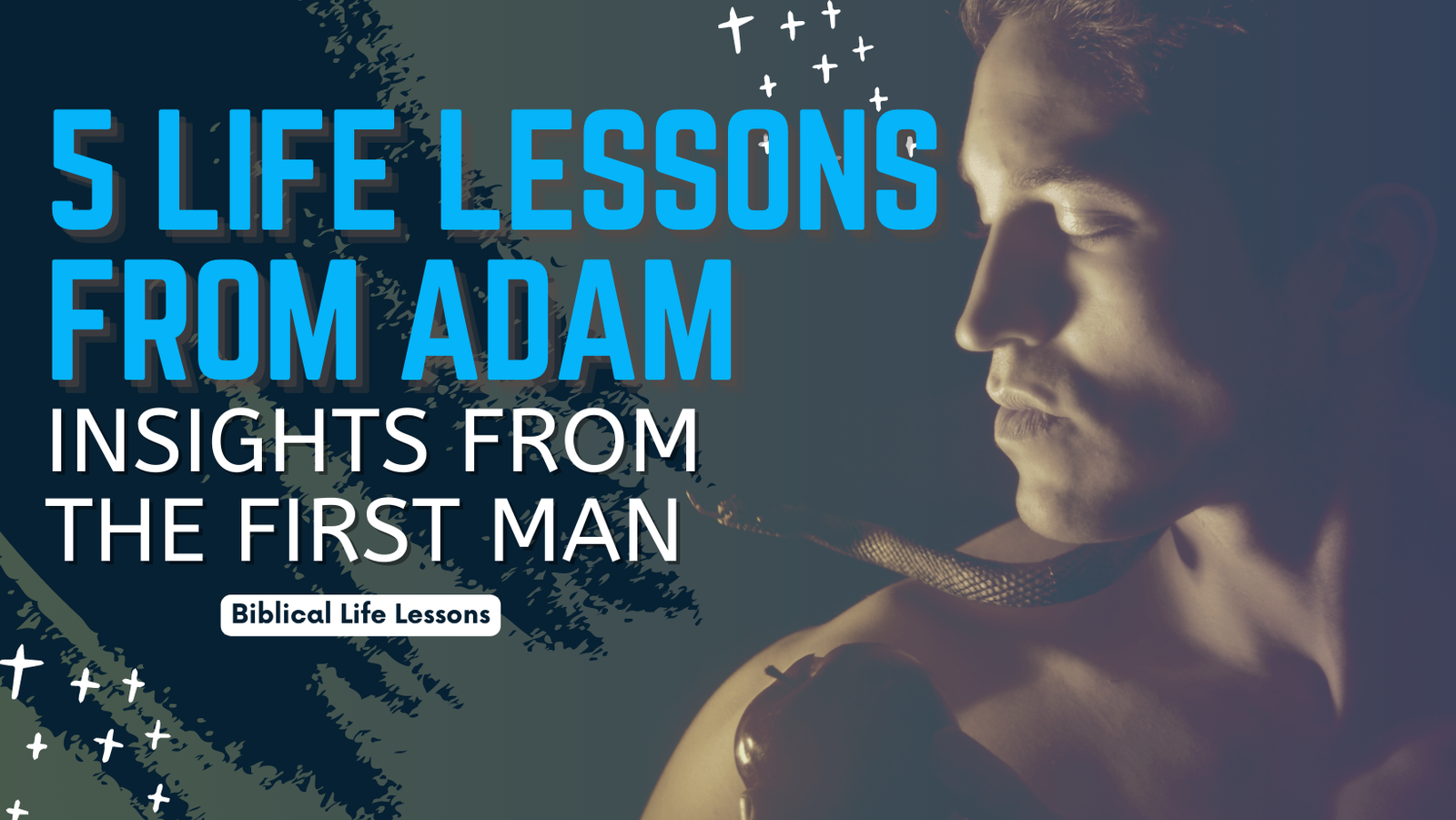The story of Adam, the first man, offers valuable life lessons that continue to resonate with individuals across cultures and generations. From personal responsibility to the significance of companionship, Adam’s narrative provides insights into human nature and our relationship with God. By examining key verses and themes from Adam’s story, we can extract important life lessons that can inspire personal growth and understanding.
- Personal Responsibility and Consequences: “And the LORD God commanded the man, saying, ‘Of every tree of the garden you may freely eat; but of the tree of the knowledge of good and evil you shall not eat, for in the day that you eat of it you shall surely die.'” (Genesis 2:16-17)
Adam’s story teaches us about personal responsibility and the consequences of our actions. God provided clear instructions to Adam regarding the forbidden tree, highlighting the importance of obedience and the awareness of consequences. This lesson encourages us to make mindful choices and consider the potential outcomes of our decisions.
- Relationship with God: “Then the LORD God took the man and put him in the garden of Eden to tend and keep it.” (Genesis 2:15)
Adam’s life demonstrates the significance of a relationship with God. Being placed in the Garden of Eden, Adam enjoyed an intimate connection with his Creator. This highlights the importance of nurturing a spiritual connection and seeking a higher purpose in our lives. Building a relationship with God can bring fulfillment, guidance, and a sense of belonging.
- Importance of Companionship: “And the LORD God said, ‘It is not good that man should be alone; I will make him a helper comparable to him.'” (Genesis 2:18)
Adam’s experience of loneliness and subsequent creation of Eve underscores the significance of companionship. This verse highlights the importance of healthy relationships, emphasizing the value of mutual support, understanding, and partnership. It reminds us that human connection and companionship contribute to our well-being and enrich our lives.
- Acceptance and Forgiveness: “Then the eyes of both of them were opened, and they knew that they were naked; and they sewed fig leaves together and made themselves coverings.” (Genesis 3:7)
Adam’s realization of his disobedience and subsequent attempts to cover his shame demonstrate the need for acceptance and forgiveness. Despite Adam’s transgression, God extended forgiveness and provided garments to cover their nakedness. This teaches us the importance of seeking forgiveness when we make mistakes and being willing to offer forgiveness to others.
- Learning from Mistakes: “And the LORD God said, ‘Behold, the man has become like one of Us, to know good and evil. And now, lest he put out his hand and take also of the tree of life and eat, and live forever…’ ” (Genesis 3:22)
Adam’s story emphasizes the potential for personal growth and transformation even after making mistakes. Although Adam and Eve were expelled from the Garden of Eden, God’s words reveal the opportunity for learning and self-improvement. This encourages us to learn from our past errors, embrace resilience, and strive for personal growth.
The story of Adam offers profound life lessons that resonate with the human experience. From personal responsibility and the consequences of our actions to the significance of companionship and the power of forgiveness, Adam’s narrative continues to inspire individuals to reflect on their lives and strive for personal and spiritual growth. By incorporating these lessons into our own journeys, we can navigate challenges, foster healthy relationships, and deepen our connection with a higher power.
Subscribe for Daily Email Devotionals









